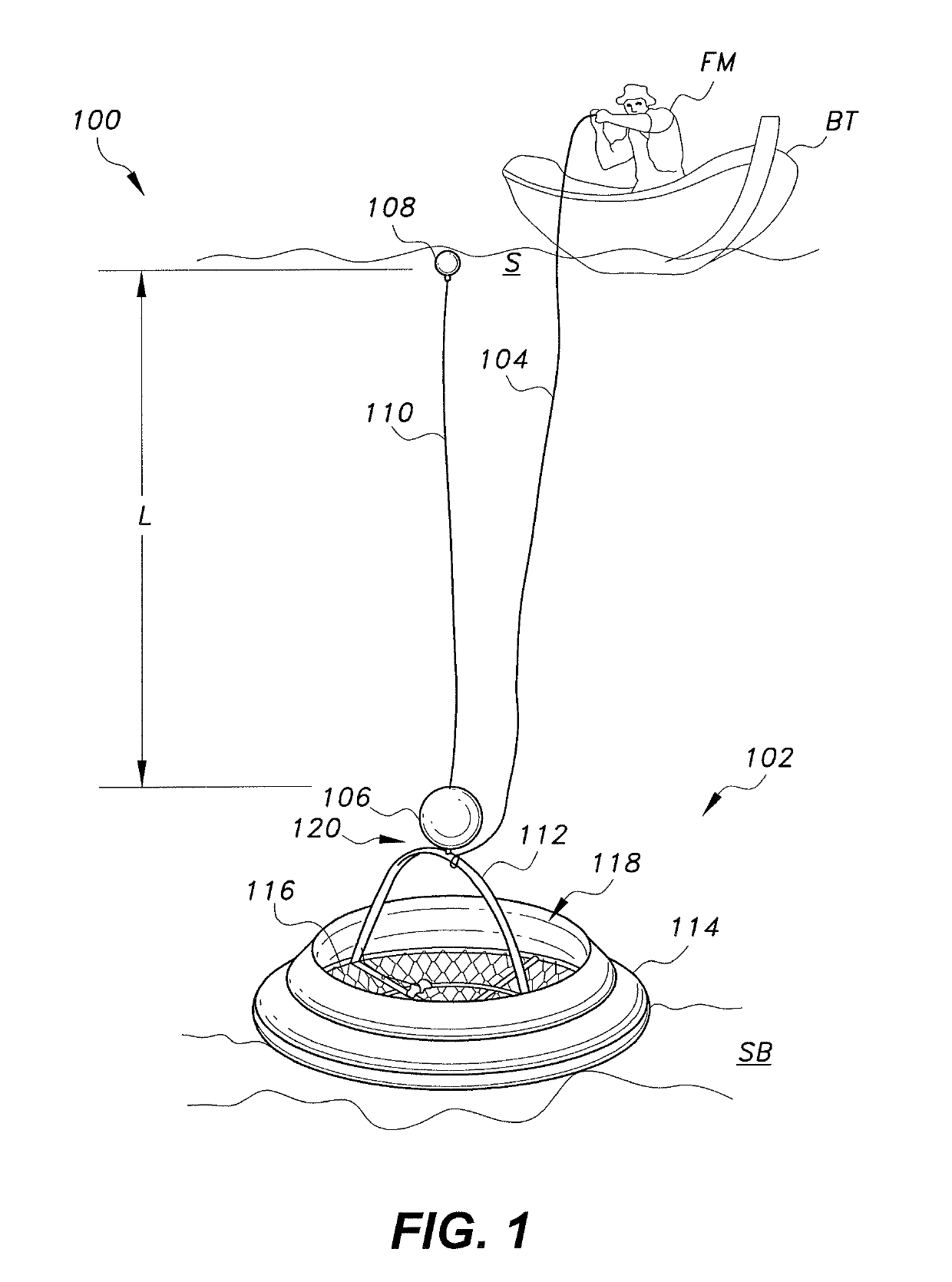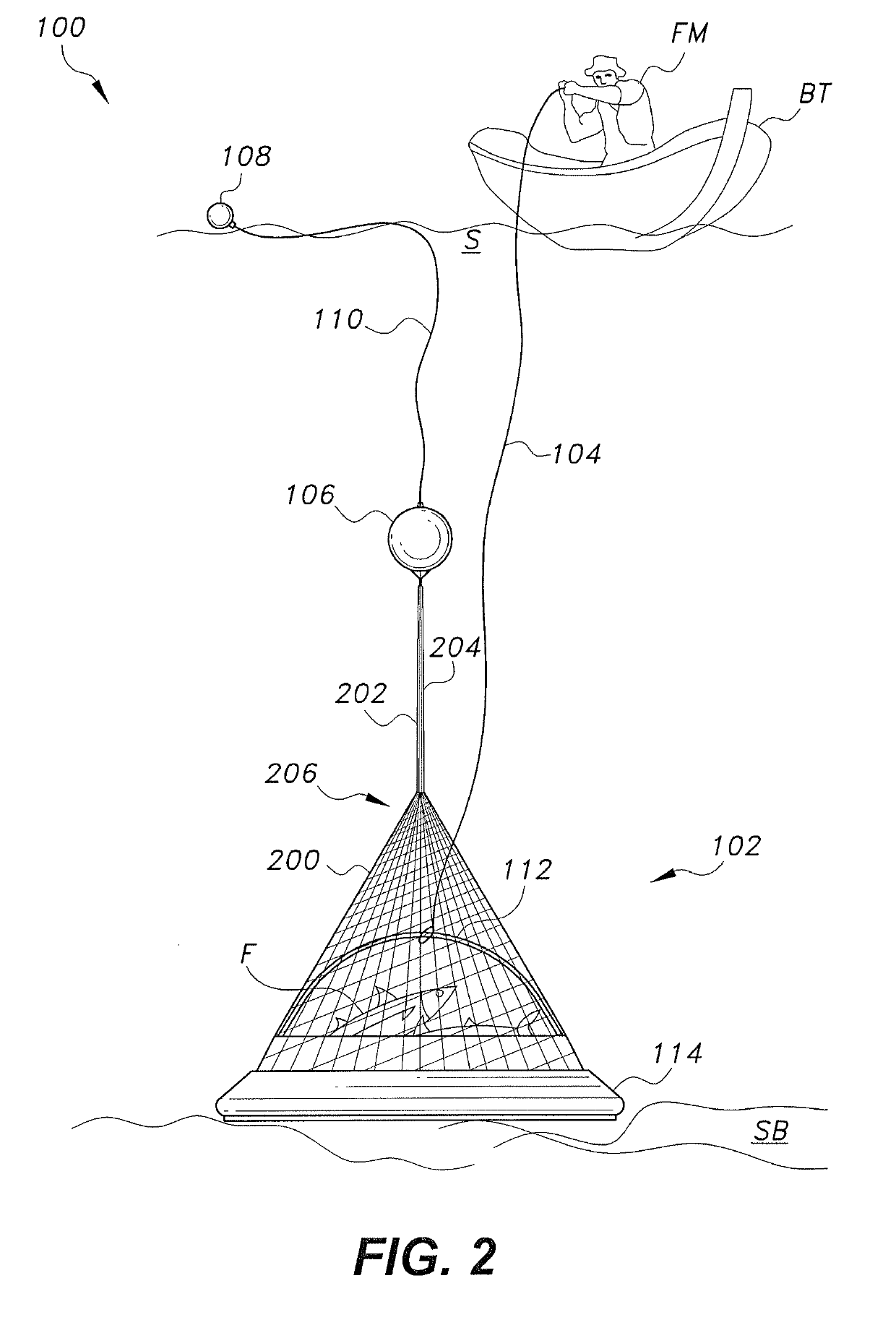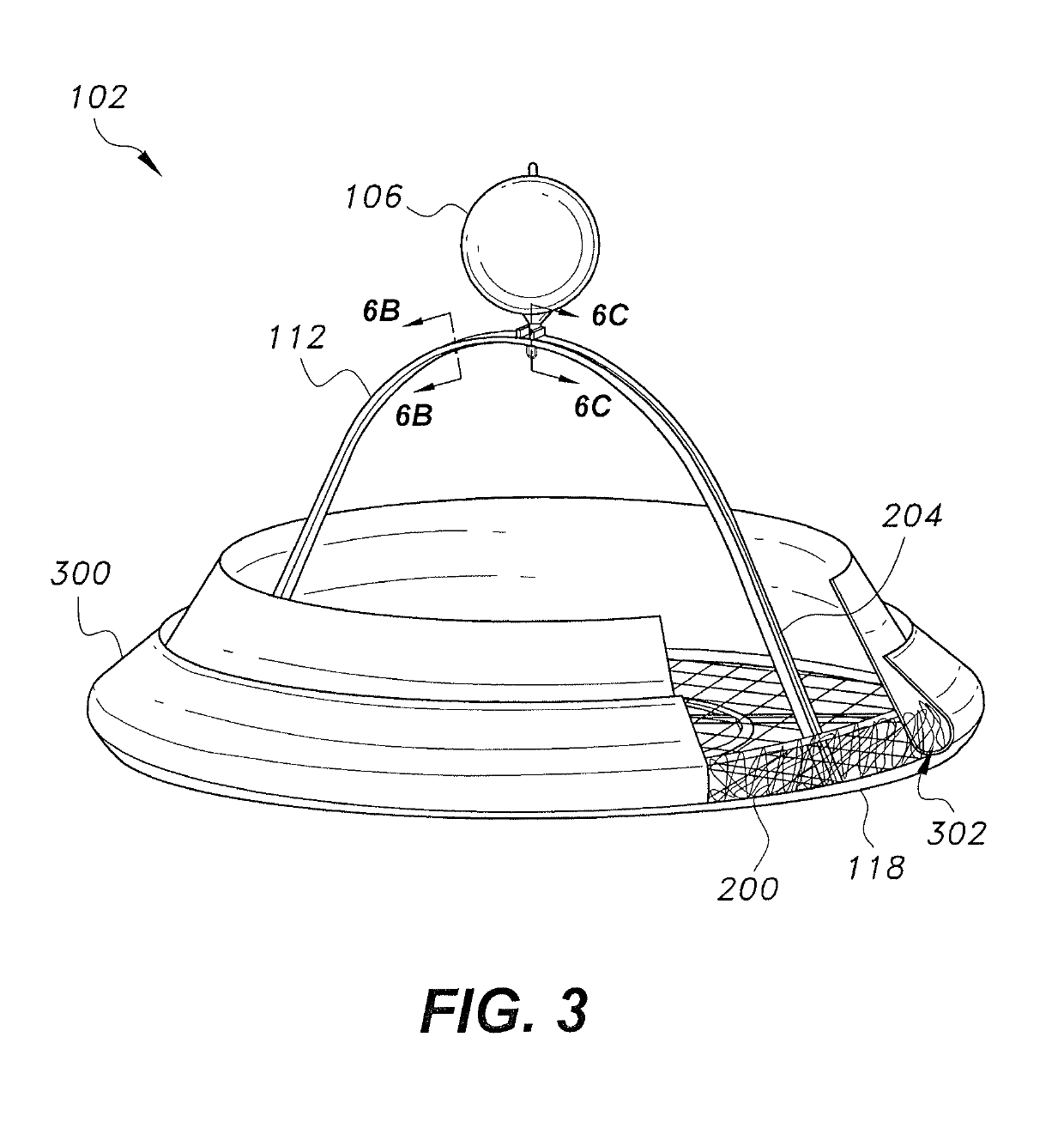Fish trap with buoy-activated net
a technology of buoyactivated nets and fish traps, which is applied in the field of fishing, can solve the problems of increasing the size of these traps, increasing the chance of contacting worthwhile schools of fish, and limited deck and trap storage capacity of typical 25 to 35 foot commercial fishing boats
- Summary
- Abstract
- Description
- Claims
- Application Information
AI Technical Summary
Benefits of technology
Problems solved by technology
Method used
Image
Examples
Embodiment Construction
[0016]FIG. 1 shows the fish trap with buoy activated net, designated generally as 100 in the drawings, in an un-sprung (open) position, while FIG. 2 shows the fish trap 100 in a sprung (closed) position. The fish trap 100 is placed on the seabed SB of a body of water and includes a substantially rigid round base 102 having an upper net 200 surrounding it. A net-activating buoy or float 106 is attached to the net by two net gathering lines 202 and 204. The net-activating buoy 106 is held stationary to an upper frame member 112 of the base 102 using a buoy maintaining and releasing mechanism 120. It should be understood that the term “line” as used herein, is intended to include any suitable elongate structures, such as thread, rope, cord, string, fishing line, etc., and the actual line chosen would be based on the overall size of the trap 100 and the required strength of the line for the particular application. The upper frame member 112 is preferably arcuate, although other shapes a...
PUM
 Login to View More
Login to View More Abstract
Description
Claims
Application Information
 Login to View More
Login to View More - R&D
- Intellectual Property
- Life Sciences
- Materials
- Tech Scout
- Unparalleled Data Quality
- Higher Quality Content
- 60% Fewer Hallucinations
Browse by: Latest US Patents, China's latest patents, Technical Efficacy Thesaurus, Application Domain, Technology Topic, Popular Technical Reports.
© 2025 PatSnap. All rights reserved.Legal|Privacy policy|Modern Slavery Act Transparency Statement|Sitemap|About US| Contact US: help@patsnap.com



